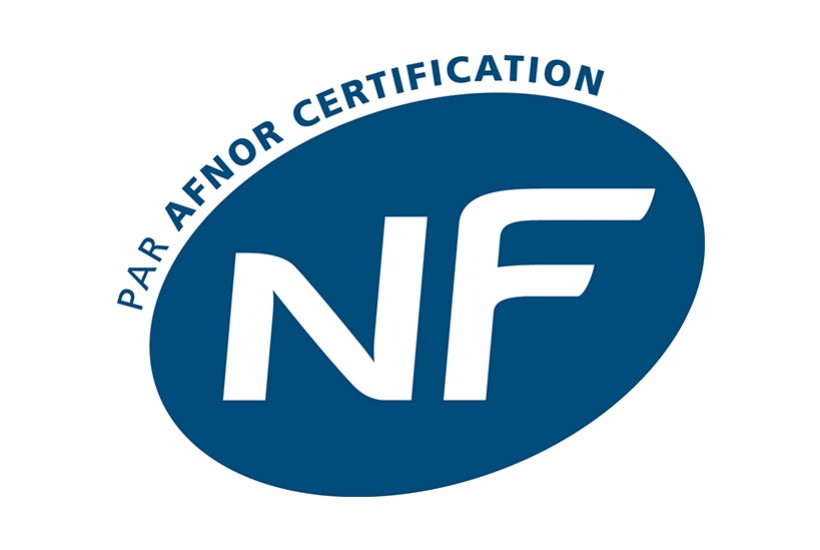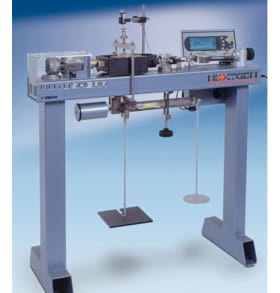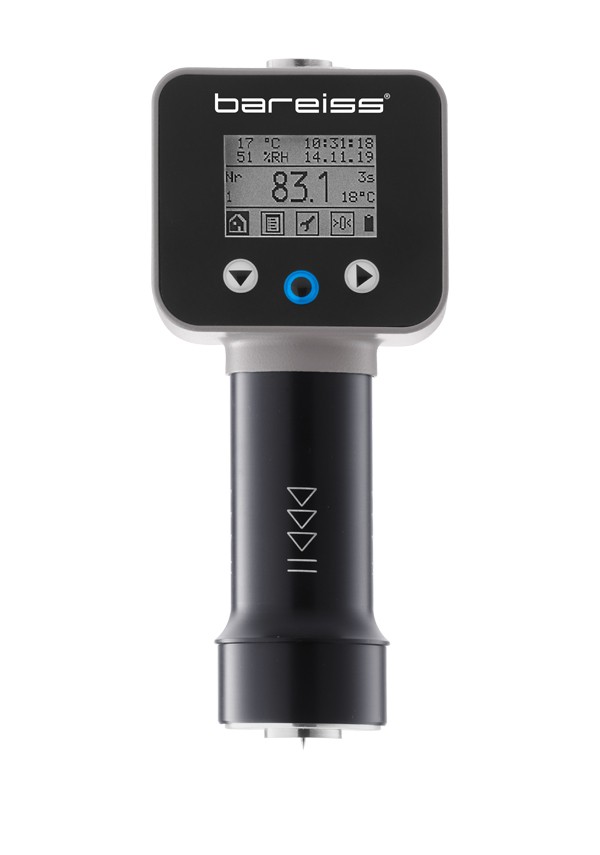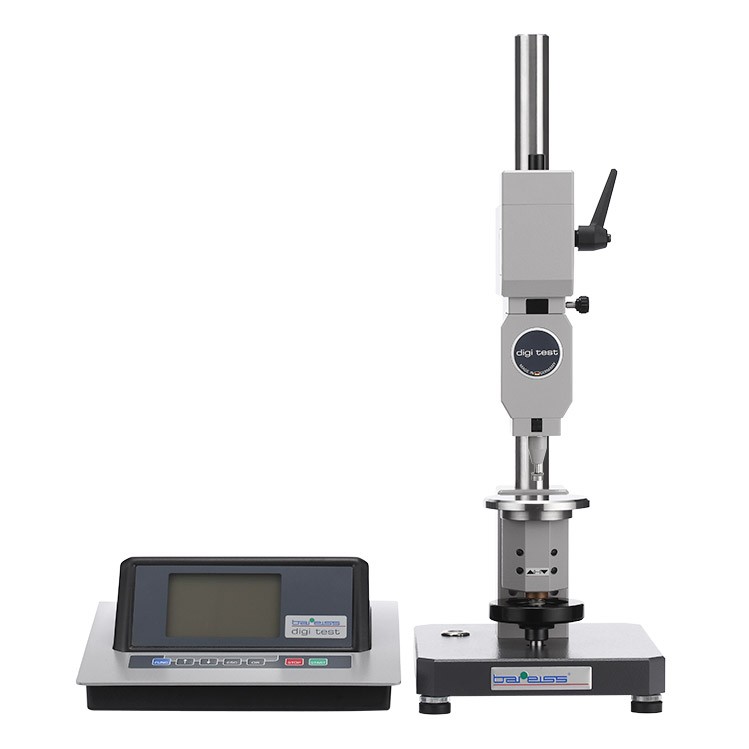NF (Norme Française) standards are guidelines and requirements developed by AFNOR (Association Française de Normalisation), the French standardization organization. These standards are designed to ensure the quality, safety, and performance of materials and products in many different industries. When it comes to material testing, NF standards serve an important purpose by specifying the methodologies, equipment, and criteria for testing to guarantee that materials meet strict international quality and safety benchmarks.
Used extensively within France and recognized globally, NF norms align with international norms, facilitating global trade and the interoperability of products and services. These standards apply to many types of materials and systems. They include an array of products like cast-iron piping, sanitary appliances, and water treatment devices.
This article will introduce you to NF standards, which are primarily used in the construction industry but also find application in other sectors. Today, we will discuss what you need to know about this type of standard, its history, where and for what it is used. We will also show you examples of tools specifically developed for standards such as NF EN ISO 868, NF T 51-174, and others.
The Legacy and Impact of NF Standards
 The history of NF standards, especially known within the French context, is tied to the development and adoption of European standards, also known as EN standards, which are designed to harmonize and facilitate trade within the European market by providing a range of technical specifications for different industries. The NF norms follow French national standards, but they are also part of a wider European framework.
The history of NF standards, especially known within the French context, is tied to the development and adoption of European standards, also known as EN standards, which are designed to harmonize and facilitate trade within the European market by providing a range of technical specifications for different industries. The NF norms follow French national standards, but they are also part of a wider European framework.
NF standards are developed under the auspices of AFNOR (Association Française de Normalisation), the French Standardization Association. This association is a key player in aligning French national standards with European and international norms. This alignment makes sure that products and services compliant with NF standards are compliant not just within France but across European borders, thereby enhancing their marketability and acceptance.
As technology advances, industry practices change, and safety protocols evolve, NF guidelines evolve continuously. To address current and emerging challenges, these standards are regularly reviewed and updated.
Differences Between NF, ASTM, and ISO Standards
Comparing NF, ASTM, and ISO standards reveals the diversity of global standardization practices crucial to quality, safety, and interoperability.
NF standards, specific to France, are developed under the Association Française de Normalisation (AFNOR). As we already mentioned, those standards are part of a broader commitment to align national standards with international expectations. This facilitates market accessibility and product reliability within and outside Europe.
There are two key players in this arena: ASTM (American Society for Testing and Materials) and ISO (International Organization for Standardization). Each has a unique approach and scope. ASTM, an American organization founded in 1902, works to improve product quality, health, and safety through standards for materials, products, systems, and services. Despite their national origin, ASTM standards are integrated into global regulatory frameworks, highlighting their international significance.
The ISO, on the other hand, was founded on February 23, 1947, and is a global federation of national standards bodies from 165 countries. It publishes standards spanning many industries and disciplines, aiming at worldwide application. ISO’s portfolio includes over 20,000 standards, covering everything from quality management systems to environmental management, food safety, and energy management.
NF, ASTM, and ISO standards differ primarily in their geographical focus, scope of application, and development process. As part of AFNOR’s oversight, NF standards are specifically designed to meet French national requirements while meeting European and international norms. Because of this dual focus on local and international compliance, NF regulations are particularly suitable for products that need to meet French regulatory requirements without compromising their global marketability.

The NF Standards and Consumer Interests Protection
By setting high standards for product safety, quality, and reliability, the NF standards help to guarantee that consumers are protected from dangerous products.
In terms of consumer protection, NF guidelines are characterized by their comprehensive approach to product evaluation. From raw material sourcing to final product testing, NF standards cover an array of materials, practices, and products. In this way, only products meeting the highest safety standards reach consumers, reducing the risk of accidents, injuries, or health issues associated with unsafe or substandard products.
Furthermore, NF standards are dynamic, evolving as technology advances, industry practices change, and consumer needs change. The dynamic nature of the standards makes certain that they remain relevant and effective in addressing current and potential safety risks. Regular updates to NF guidelines mean that consumer products, especially those in fast-moving industries like electronics and construction materials, continue to meet the latest safety protocols and technological benchmarks.
Aside from providing direct safety benefits, NF standards also foster consumer trust and transparency. NF logos are often visible on products certified to meet NF standards, informing consumers of the product’s quality and compliance. Consumers can trust that products with this certification are safe, reliable, and of high quality, helping them to make informed choices.
NF norms also contribute to environmental protection, which indirectly benefits consumers by making sure environmentally friendly products are produced. Sustainability promotes products that are not only safe to use, but also better for the environment, addressing consumer concerns about environmental impact and health
NF Standards in Digital Transformation and Cybersecurity
Apart from material testing, cybersecurity has become a key concern in the era of digital transformation, when industries increasingly rely on digital technologies to enhance their operations. The NF standards provide a robust framework for digital transformation efforts while ensuring data security and cyber threat protection. In this way, these standards guide organizations through the complexities of digitalization, guaranteeing that new technologies do not compromise data and digital assets security.
NF guidelines relevant to cybersecurity, such as NF ISO/IEC 27001, are crucial to establishing and maintaining information security management systems (ISMS). Specifically, this standard specifies requirements for establishing, implementing, maintaining, and continually improving an ISMS. Following NF ISO/IEC 27001 helps organizations manage and protect their information assets safely and securely, increasing resilience against cyber threats. The standard addresses a number of aspects of cybersecurity, including risk management processes, security policy, asset management, human resource security, physical and environmental security, and compliance with legal and technical requirements.
By implementing NF standards in digital transformation and cybersecurity, organizations can significantly increase their ability to manage information security risks. In addition to strengthening an organization’s cybersecurity posture, these standards provide a framework for identifying, assessing, and mitigating cyber threats.
Also, NF standards foster trust among customers and stakeholders, an important factor in a competitive digital economy. Obtaining certification against these standards signals to the market that an organization takes data security seriously, giving them a distinct competitive advantage. Additionally, NF standards encourage organizations to stay vigilant and adapt to evolving cyber threats by continuously improving cybersecurity measures. Keeping robust digital defenses and protecting the organization’s digital assets requires a dynamic approach.

Increasing Global Trade through NF Standards Integration
The integration and harmonization of NF guidelines with European and international standards plays a key role in fostering global trade and ensuring the smooth transition of products and services across borders. This effort is largely facilitated through the harmonization of European standards and mutual recognition agreements (MRAs) with other international standardization bodies, promoting a streamlined approach to meeting diverse global requirements.
Bridging Local and Global Needs
Harmonized standards are European standards developed by recognized European Standards Organizations such as CEN, CENELEC, or ETSI, following a request from the European Commission. These standards allow manufacturers, and other stakeholders, to demonstrate that their products, services, or processes comply with relevant EU legislation. Importantly, harmonized standards references must be published in the Official Journal of the European Union. This structure supports the integration of French standards within a broader European framework, enhancing the interoperability of products and services on a global scale.
Within this framework of harmonized standards, NF is essential in making sure that French products and services meet EU regulatory requirements but also align with global market expectations. This smooth integration underlines the importance of NF standards in supporting manufacturers and stakeholders in navigating international trade complexities.
The New Legislative Framework and Standardization
The New Legislative Framework (NLF), which came into force in January 2010, has updated existing legislation to align with contemporary standardization concepts. This framework underpins CE marking legislation, emphasizing the harmonization of definitions, responsibilities, European accreditation, and market surveillance. It illustrates the EU’s commitment to reducing trade barriers and promoting a unified approach to standardization. This facilitates access to the EU Single Market while making certain that products meet high safety, health, and environmental protection requirements.
Mutual Recognition and Global Integration
The European standardization system demonstrates the EU’s commitment to facilitating global trade. A number of standards in the EU are adopted from international bodies like the International Standards Organization (ISO), demonstrating the global orientation of European standardization efforts. By extending the reach of European regulatory and standards systems beyond its borders, this system facilitates the development of standards that meet local and international needs. A number of stakeholders are involved in the standardization process, and the EU promotes a wide-ranging influence on global standardization practices through affiliations with countries and regions outside the EU.
Use of NF Standards in Diverse Industries
While construction emerged as the primary industry leveraging NF standards, its application extends beyond. These standards play a vital role in guaranteeing compliance, safety, and quality in many more sectors. Let’s look at the common industries using NF guidelines, providing examples of their specific applications. From healthcare ensuring medical device reliability to renewable energy focusing on sustainable technology standards, NF standards underpin critical aspects of industry operations, demonstrating their flexibility and crucial role in maintaining high-quality benchmarks across diverse industries. As a starting point, let’s take a look at the largest industry:
Construction Industry
A complex matrix of safety, quality, and performance standards governs the construction industry, which is integral to the development of infrastructure worldwide. Among these, NF standards hold a key position, especially within French territories and in countries where French standards are adopted or recognized.

NF standards also include environmental aspects, such as the NF HQE (Haute Qualité Environnementale) certification, which focuses on sustainable development in construction. This certification evaluates buildings based on several criteria, including energy efficiency, materials selection, environmental impact, and indoor air quality, promoting the design and construction of buildings that are environmentally responsible and provide occupants with healthy spaces.
The NF P94-071 standard, for example, focuses on the testing of soils for engineering purposes. This standard describes methods for preparing and testing soil samples, which are essential for determining the suitability of a site for construction. By doing so, the foundational aspects of construction are thoroughly evaluated, including the bearing capacity of the soil and its characteristics. Buildings and infrastructure must undergo this evaluation to avoid potential issues such as subsidence and structural failure.
NF P94-090-1 is another notable standard, which pertains to soil testing for civil engineering. Detailed procedures are provided in this part of the standard for determining the moisture content of soil samples, which affects soil behavior and its suitability for construction. Construction projects require understanding soil moisture content in order to make informed decisions about compaction, stabilization, and drainage.
Automatic Shear Testing Machine with NF P94-071 Compliance
When it comes to NF standards, especially for soil testing, NG-Shear DGEN’s Automatic Shear Testing Machine stands out as an innovative and reliable machine. In compliance with the stringent NF P94-071 standard, this equipment is pivotal for projects requiring comprehensive soil analysis.
 NG-Shear DGEN exemplifies technological advancement, perfectly integrating NF standards with civil engineering needs. Designed to determine the consolidated drained shear strength of soil materials by direct shear, it serves as an essential tool for assessing the suitability of a construction site.
NG-Shear DGEN exemplifies technological advancement, perfectly integrating NF standards with civil engineering needs. Designed to determine the consolidated drained shear strength of soil materials by direct shear, it serves as an essential tool for assessing the suitability of a construction site.
NG-Shear DGEN soil analysis machine features a microprocessor-controlled system for precision and efficiency in soil analysis. A large monochromatic graphic display and closed-loop test speed control make complex soil testing procedures straightforward and accessible. Different calibration functions enhance the machine’s versatility, making it suitable for a range of soil types.
One of the many features that distinguishes the NG-Shear DGEN is its ability to select languages and program travel and loop cycles. A high-capacity data memory ensures that no detail is missed, with a design that prioritizes user safety and data integrity. With RAM, battery backup, and clock/calendar functions, this machine can function independently, reducing the need for a constant PC connection.
By using high-quality techno-polymeric materials, the NG-Shear DGEN machine is resistant to corrosion, wear, and chemical exposure.
Compliance with NF P94-071 is not just about meeting regulatory standards. It’s about guaranteeing that construction projects are built on thorough soil analyses. This principle is embodied by the NG-Shear DGEN Automatic Shear Testing Machine, which provides engineers and construction professionals with an essential tool for infrastructure construction.
Aerospace Industry
Aerospace components and systems depend on NF standards to guarantee safety, reliability, and performance. In addition to covering materials, manufacturing processes, and testing methodologies, these standards provide a comprehensive framework for quality assurance.
Materials used in aerospace applications must meet rigorous criteria for hardness, durability, and resistance to environmental stresses, as defined by NF specifications, such as NF EN ISO 868. However, their influence extends beyond material properties to encompass design, manufacturing, and operational processes.
In aerospace, where margins for error are negligible, NF standards provide precise specifications for components such as turbine blades, fuselage panels, and control systems. For aircraft and spacecraft that endure extreme conditions, they guide the testing of materials for thermal resistance, fatigue life, and aerodynamic performance.
A second benefit of NF guidelines is that they support the industry’s commitment to innovation and sustainability. By providing guidelines for the development of new materials and technologies, including composites and additive manufacturing, these advancements are safely incorporated into aerospace applications.
Advanced Portable Shore Durometer System That Meets NF EN ISO 868
Especially in industries that require compliance with NF EN ISO 868 and other related standards, we cannot ignore our Advanced Portable Shore Durometer System with Test Stand Options. A state-of-the-art machine that measures hardness accurately is designed to meet the demands of several sectors including automotive, aerospace, defense, and rubber and plastics.
 Due to its compatibility with DIN ISO 7619, DIN EN ISO 868, NF EN ISO 868, ASTM D 2240, and SRIS 0101 standards, the system can be applied to a diverse range of material testing situations, allowing users to assess indentation hardness in plastics and ebonite comprehensively. By measuring hardness values simultaneously with temperature and humidity, it is an ideal tool for analyzing material properties under varying environmental conditions.
Due to its compatibility with DIN ISO 7619, DIN EN ISO 868, NF EN ISO 868, ASTM D 2240, and SRIS 0101 standards, the system can be applied to a diverse range of material testing situations, allowing users to assess indentation hardness in plastics and ebonite comprehensively. By measuring hardness values simultaneously with temperature and humidity, it is an ideal tool for analyzing material properties under varying environmental conditions.
Made in Germany, the device boasts the highest accuracy and repeatability. With its intuitive user interface and ergonomic design, the system ensures a perpendicular specimen approach and minimizes measurement errors due to incorrect angles or force application. Displaying hardness values, temperature, and humidity readings clearly on the large LCD screen improves usability, and USB connectivity makes data management and battery charging more convenient.
A robust aluminum casing offers durability and a lightweight design, offering an optimal balance for use in the field and laboratory. This system’s patented hand grip design further commits to precision and ease of use.
Food Industry
NF guidelines are also used in the food industry. As part of the food industry, they are responsible for a wide range of tasks, from food handling and processing to packaging and distribution. For instance, standards such as NF V01-010 set guidelines for hygiene and food safety management systems, guaranteeing that food processing plants maintain high levels of cleanliness and manage risks associated with foodborne illnesses. Similarly, NF EN 1672-2 focuses on food processing machinery safety and hygiene requirements, specifying how equipment should be designed and constructed to prevent contamination and provide easy cleaning and maintenance.
They not only help maintain the quality and safety of food products, but also improve consumer confidence in food brands. In a highly competitive global market, food producers and processors are able to demonstrate commitment to meeting international safety and quality benchmarks by complying with NF standards.
Healthcare Industry
The NF standards guarantee that medical devices, pharmaceuticals, and healthcare services are of the highest quality. From sterilization processes to medical equipment performance and safety, NF guidelines directly impact patient care and safety.
In NFT 46-003, an exemplary standard, materials used in healthcare are carefully evaluated for compliance with health and safety criteria. As a cornerstone for certifying products and practices within the sector, this standard serves as a blueprint for maintaining and achieving quality.
In healthcare, NF standards guarantee sterilization processes effectively eliminate microbial life from medical tools, preventing infections. Assuring the safety and efficiency of medical equipment used in diagnosis and care is one of their responsibilities. Furthermore, these standards improve patient care quality and reduce risk, enhancing overall patient safety. As a result of this comprehensive approach, standards are essential in health and safety.
Digi Test II Hardness Testing System Compliant with NFT 46-003
 NFT 46-003 is a crucial standard that highlights the importance of materials used in healthcare settings when discussing the significance of NF standards in the healthcare industry. In this context, the Automatic Shore, IRHD, and VLRH Hardness Testing System, developed with precision engineering in Germany, is an excellent example of how these standards are met.
NFT 46-003 is a crucial standard that highlights the importance of materials used in healthcare settings when discussing the significance of NF standards in the healthcare industry. In this context, the Automatic Shore, IRHD, and VLRH Hardness Testing System, developed with precision engineering in Germany, is an excellent example of how these standards are met.
NFT 46-003 is embodied in the Digi Test II system that offers a comprehensive solution for testing materials’ hardness in healthcare devices. Compatibility with standards such as DIN ISO 7619 and ASTM D 2240, as well as NF T 46-003, emphasizes its relevance and applicability in compliance with health and safety requirements of medical devices.
German manufacturing excellence is evident in the high accuracy and repeatability of this system. Healthcare providers and manufacturers are assured of their reliability and compliance with international quality standards thanks to industry certification. Digi Test II offers a complete calibration solution, ensuring that every measurement is accurate and reliable.
An important feature of Digi Test II is its adaptability and user-friendliness. Its electronic unit simplifies operation and makes it accessible to users across a wide range of industries, including healthcare. By minimizing operator influence and error, it provides accurate and repeatable hardness test results. As a result of its modular design and interchangeable measuring units, the system can cater to an array of healthcare testing needs.
Furthermore, Digi Test II is designed to be innovative. With its ability to test hardness on concave and convex surfaces, it is a useful instrument for assessing the quality of complex shapes and materials used in medical devices. As a result of its automatic centering and customizable indenter lengths, it is highly useful for healthcare providers and manufacturers.
Summarizing NF Standards in Material Testing
To sum up, NF standards play a key role in protecting the environment and transforming industries, demonstrating their adaptability in meeting the changing demands of industry and consumers. With their stringent quality benchmarks, NF standards promote consumer trust, enhance safety, and support sustainable development and innovation.
If you need help with material testing, especially NF standards, you have come to the right place. We at NextGen Material Testing, Inc. are proud of our knowledge of these standards and ability to provide tailored solutions that meet their stringent requirements. Through our product offerings, we are able to not only recognize the importance of NF standards, but also apply them effectively.
You are welcome to request an online quote from us or contact us directly if you require additional assistance, additional equipment, or other support with your material testing requirements. Our team is ready to provide individualized consultations and customized solutions that meet the highest performance and quality standards. Our goal at NextGen Material Testing, Inc. is to be your trusted partner in navigating the complexities of NF standards and successfully completing your material testing projects.
